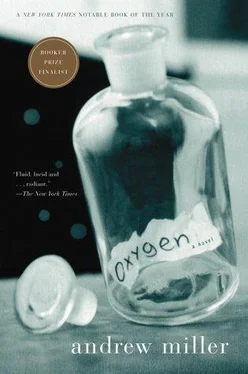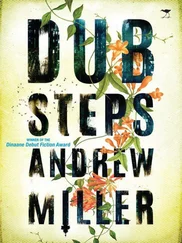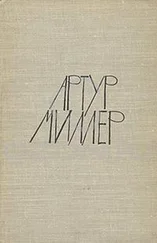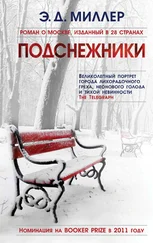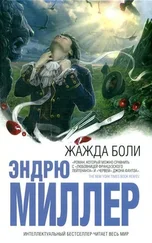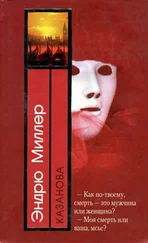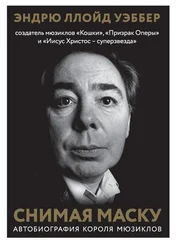‘It’s all right,’ she said, touching his arm, and she left him. ‘I’m here!’ she sang. ‘I’m he-re!’
Larry fixed the fuse. Everyone cheered when the lights came on again. The party had a new lease of life. Mr Bajrami, who taught maths, performed an impromptu flamenco with Miss Lynne, who taught art. Larry dispensed nightcaps from a large bottle of Black Label he had bought at duty-free in San Francisco. Alice told a risque joke about two nuns on holiday in Paris, a joke Alec had heard her tell once a year for as long as he could remember. The last car door clunked shut just as the light came up, the dawn mist drifting off the fields.
‘Bye-bye, Alice. God bless. Marvellous party!’
Carrying the coiled flex over his shoulder, the extension lead in one hand and the storm lantern in the other, Alec mounted the three mossy steps from the terrace to the lawn, then crossed the lawn to the wooden gate that led into the orchard. There had been an orchard here for perhaps three hundred years, if the first trees had been planted when the house was built. The present trees were shaggy with lichen, and despite pruning some gave fruit only one year in three. But the fruit they did give, small and hard and tart, was, for Alec, the true taste of an apple, and he never bought apples in London, however sweet or polished they looked on the supermarket shelves.
He walked to the centre of the orchard, set down the lantern and lifted the lights from his shoulder. There were four trees, well spaced, which served as the posts from which the lights were always hung. He began to work, securing the bulb at the end of the flex in a nook just above his head, then walking backwards, paying out the flex until he reached the second tree, then backwards again to the third and fourth, before connecting the flex to the extension lead and running the lead to a socket by the wall. He was crouched there with the plug in his hand when he heard the ringing from the house. In the instant of hearing it he thought it was the alarm, and that he would not answer it. Then he realized it was the telephone and he sprinted across the lawn, blindly, reaching the kitchen just as the ringing stopped. He went to the bottom of the stairs. The call went on for perhaps two minutes, after which he heard the receiver returned clumsily to its cradle. He went up.
‘Larry,’ she said.
‘I was in the garden. Sorry.’
‘He’s coming soon,’ she said.
‘I couldn’t get to the phone in time. Sorry.’
‘It doesn’t matter.’
‘No.’
‘Goodnight, dear.’
‘Goodnight. Mum?’
‘What?’
‘Goodnight.’
In the orchard he plugged in the bulbs. They worked perfectly, jewelling the dark as on so many nights in the past, nights even when Stephen was alive. The cat was back, caught in the glare as it hunted in the long grass. It froze, then leaped on to a water butt, leaped onto the wall, and away into the invisible. Alec returned under the square of lights, and after standing there a moment like a man who has entirely forgotten what he came for, he sank down with his back against one of the trees. He knew now, with a certainty that bordered upon relief, that he wasn’t going to manage. No labour of the intelligence, no artifice or soft voice could help him. Losing Alice would not be difficult, it would be unendurable, and something in him would simply not survive it. With the others he would have to go on pretending for a while, but out here there were only bats and stars to see him, and he took off his glasses, folded them carefully, put his head in his hands, and wept.
There was a moment sometimes, on waking, the moment before she remembered to be ill, when she felt almost normal. It reminded her of a scene she must have watched in an old film: the condemned man led out of his cell to be shot, but pausing in the courtyard to register the temperature and the light and whether or not it was likely to be a fine day, as if he would be part of it, as if it mattered. Habit, like that poor Burmese Orwell wrote about, stepping over a puddle on his way to the gallows, not wanting to get his feet wet. Was that the last to go? Certain gestures, reflexes, a way of cocking the head or moving the hands in speech? Her own hands felt as if they would soon become too heavy for her, as though they were great paddles instead of fragile webs of bone and knotted blue veins. It was hard to keep her rings on now. They slipped off while she slept.
With a grunt of effort she sat up on the side of the bed, then leaned forward, a position that she found helped her to breathe. The room was fuggy. Too many flowers, too little air. She would open the window. After all, what did it matter if she caught a cold? And what if it became pneumonia? The old person’s friend, they used to call it, though she doubted there was anything very friendly about it, drowning in your own bed. But which of the doors out of this world was easy? Stephen smashed up in the Rover. Her father, his fingers yellowed from three packets of Woodbines a day, dying from something malignant and vague like disappointment or boredom. And now herself, this. Death blooming in her skull like a flower. A black tulip.
She turned to the window. There was nothing much to see, just the stealthy undermining of the sky. 3:51 said the clock, 3:52. Not long now.
At the second attempt she stood up. The world swung, then settled. Her feet found her slippers and she shuffled to the window, struggled with the catch, rested, struggled again, and finally got it to open. Was it night or day that washed over her now? She caught a whiff of the fields, the moor, the five-miles-off sea. Somewhere out there a car was driving through the lanes. She couldn’t see its lights, but the drone of its engine carried very clearly. Some man or woman with his own burden of happiness or confusion. Someone who knew nothing about her and whom she would never meet. Not now.
Her cigarettes (and a spare Ventolin inhaler) were in the blue pomander pot of Venice glass on the window ledge. Una knew that she had them there, but all she had ever said was to be careful not to have a flame near the oxygen bottle unless she wanted to blow the roof off. The idea was not without appeal. A great blue flash, a bang that would echo for miles, then no more nights to be sweated through. She took the lid off the pot and shook a cigarette from the pack, an ultra-light, a breath of fresh air she used to call them. They no longer gave her any pleasure but they gave her the memory of pleasure, and that was something. She flicked the lighter. The coughing on the first drag almost shook her off her feet. She used the inhaler, coughed again, then spat the bitterness into a tissue and pushed the window wider, letting the breeze slide like water over her skin.
Away to the right there was a glow above the orchard, almost as if there were a fire there, though the light was too steady for flames. She leaned and peered. A light in the orchard. What on earth was Alec up to? Was he outside still? At this hour? It was he, of course, who would try hardest to hold on to her. As a toddler he could not bear to have her out of his sight, following her around the house, even into the toilet, staggering after her, her little warder, her second-born, her baby. It pierced her that she could not spare him this, and a wave of tenderness went through her, followed by a sudden flush of self-hate in which she appeared to herself as a cronish, mean-spirited woman, who in the long enterprise of loving had failed those towards whom she had the most explicit duty. A mother was there to be devoured! (It was the hour for such strange thoughts: moths that only flew at dawn.) Not just her milk, but her bones and blood and brain. Had she kept something from them? Was that what Alec had come back for – to find what she had kept from him? To claim it? To eat up the last of her? She had a sudden startling image of them, Alec and Larry, in black suits like bank clerks, coming into the room and sitting by the bed, until shyly, tearfully, they reached beneath the pulled-up sheet to bite off a fingertip, an earlobe…
Читать дальше
